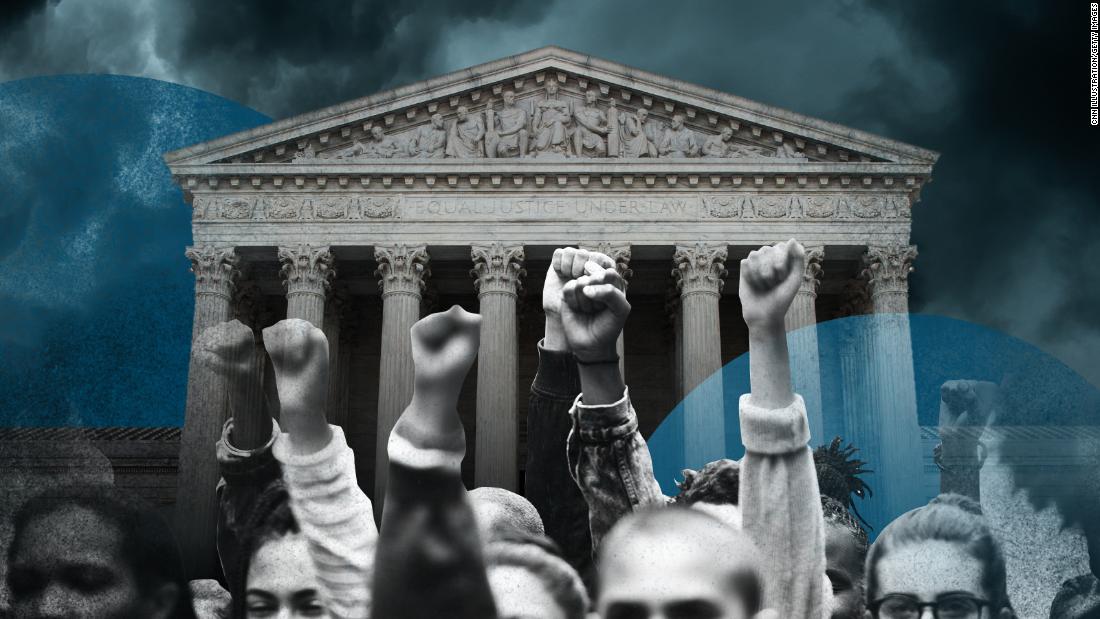Supreme Court justices have revealed a new level of defensiveness and anger in recent weeks
The extraordinary public display extends beyond any single justice or case, although the majority’s decision to let a Texas near-ban on abortions take effect has plainly triggered much of the consternation.
Alito told a Notre Dame Law School audience that the court has been wrongly cast as “a dangerous cabal … deciding important issues in a novel, secretive, improper way, in the middle of the night.”
He and other justices newly speaking out have condemned the news media for playing up the significance of the court’s September 1 decision that allowed an abortion ban after about six weeks of pregnancy to take effect. But as dissenting justices wrote, the decision undermined the court’s precedent on abortion rights dating back nearly a half century. And the impact on the ability to obtain abortions in Texas is undeniable.
Rarely have so many justices uttered such provocative, off-the-bench comments at the same time. Some are at cross purposes, but they all highlight the potential for declining confidence in America’s highest court. Public opinion polls and new congressional scrutiny reinforce a possible new threat to the court’s reputation and legitimacy.
Conservatives have tried to minimize the significance of their rulings and suggested they are merely responding to cases that come their way. But as the right-wing majority — now with three Donald Trump appointees — has moved aggressively, liberals have not kept their despondency quiet.
That poll was conducted in early September after the order declining to block the Texas abortion law and after it also had rejected Biden administration initiatives on US asylum policy and an eviction moratorium during the pandemic.
The court’s image and institutional acceptance may matter even more in the weeks ahead, as the justices undertake a new session that includes continued abortion-rights disputes, a test of Second Amendment rights and gun regulation, and a controversy over public aid for religious schools.
No more ordinary speeches
The speeches of Supreme Court justices tend to be rooted in history and broad legal themes and they often seek to be inspirational. They usually shun talk of cases or current events. Most avoid politics.
She was introduced by Senate Minority Leader Mitch McConnell, who had a strong hand in shaping the current Supreme Court. The Kentucky Republican blocked then-President Barack Obama’s 2016 nomination of Merrick Garland, saying the presidential election year precluded Senate action on a Supreme Court nominee. Four years later, after Justice Ruth Bader Ginsburg’s death, McConnell ensured that Barrett was confirmed just days before the 2020 election.
Justice Clarence Thomas, also a conservative, struck a similar theme against the news media when he spoke to a Notre Dame Law School audience last month.
Justice Stephen Breyer, who has been promoting a new book in a round of interviews, has focused on how long it took the court to build public confidence over the decades.
The senior liberal has urged audiences not to take such confidence for granted. He also had urged people not to see the justices as “junior-varsity politicians.”
Breyer, too, has criticized journalists and politicians for identifying justices by the presidents who appointed them and their political parties. The Bill Clinton appointee also argues that the current 6-3 split at the high court does not reflect politics or ideology but rather jurisprudential methods.
On today’s court, however, all six conservatives were appointed by Republican presidents and the three remaining liberals were appointed by Democratic presidents. In earlier eras, alignments did not break as neatly along political lines.
Decisions in closely watched cases often follow the familiar lines. In the 2020-21 term, the six conservative justices (over liberal dissent) narrowed the reach of the 1965 Voting Rights Act and ruled against union organizers on agricultural land. The recent disputes regarding abortion, the eviction moratorium and asylum policy also split the justices largely by ideological and political affiliation.
The shadow docket
Of all the recent remarks by justices, Alito’s were the most pointed and surprising. It is unusual for a justice to engage in such an extended public defense of internal procedures.
His remarks at the Notre Dame Law School addressed the justices’ process for emergency requests on what has been dubbed “the shadow docket.” That phrase has mainly been used by critics, but liberal justices have also invoked it, and in the Texas abortion case, Justice Elena Kagan said the majority’s action was “emblematic of too much of this court’s shadow-docket decisionmaking — which every day becomes more unreasoned, inconsistent and impossible to defend.”
Such cases are resolved without full briefings or oral arguments, often without any public explanations or recorded votes. They sometimes come late at night, such as the Texas order, which was issued at midnight September 1.
Alito tried to make the case that critics had wrongly cast the justices’ handling of emergency requests as sinister and threatening. He said they act in “the dead of night” because filings come to them late. He said the justices are not “so deluded” that they think they can “sneak” through orders without detection.
Alito also scoffed at attention members of Congress were putting on the so-called shadow docket and the Texas case.
Senate Judiciary Chairman Dick Durbin, holding a hearing on Wednesday, said he was skeptical of justices’ assertions that politics do not influence their actions. Durbin, an Illinois Democrat, observed that during the Trump years the high court routinely favored the Republican administration in such emergency orders.
“So,” said Durbin, “when Justice Breyer decides to write a book and Justice Barrett decides to go to the McConnell Center in Louisville, Kentucky, and argue that ‘no politics, we’re just playing them straight, calling them as we see them,’ and then you look at this (Texas abortion case), well, it defies description.”
Speaking to his audience a day later, Alito attributed “political talk” and criticism to “unprecedented efforts to intimidate the court or damage it as an independent institution.”
![]()


